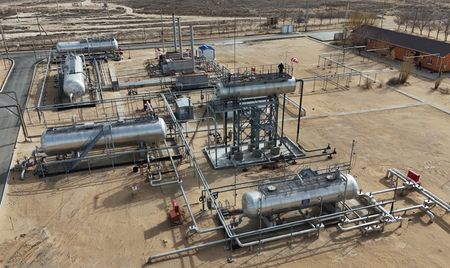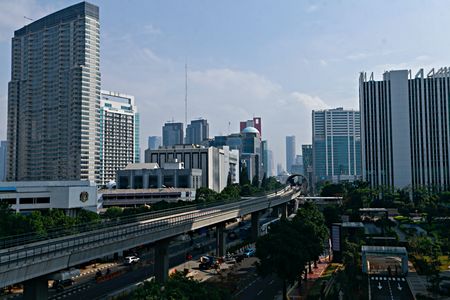By Makiko Yamazaki
TOKYO (Reuters) -Japanese banks must monitor various risks associated with high levels of uncertainty over global trade policies, the Bank of Japan said on Wednesday, as U.S. President Donald Trump’s tariffs have rocked financial markets in recent weeks.
“Japan’s financial system has been maintaining stability on the whole,” the BOJ said in a semi-annual report.
But since the beginning of April, “uncertainty has heightened regarding the formulation of trade and other economic policies in each jurisdiction, geopolitical risks, and developments in global financial markets,” the BOJ said.
Trump announced his tariffs on most of the U.S.’ major trading partners on April 2.
“Financial institutions need to be vigilant against the materialization of various risks” it said, noting that the prices of their stockholdings could swing while the potential for defaults at their client firms could increase.
A moderate economic recovery has led to a slowdown in the rise in bankruptcies and defaults, but greater uncertainty over global trade policies could hurt firms’ financial positions, the BOJ said in the report.
The latest report also pointed out Japanese banks’ growing exposure to foreign non-banks through investment trusts and loans to private equity and debt funds, while overseas hedge funds are also stepping up investments in Japanese stocks and bonds.
The stronger link between Japanese banks and overseas non-banks suggests that Japan’s financial system may have become more susceptible to fluctuations in global financial markets and the influence of the foreign non-bank sector, both directly and indirectly, the report said.
(Reporting by Makiko Yamazaki; Editing by Christian Schmollinger and Hugh Lawson)








